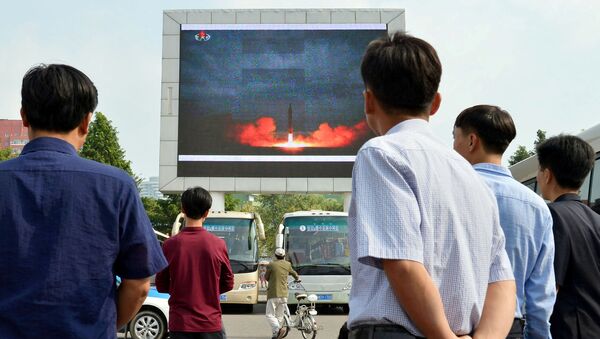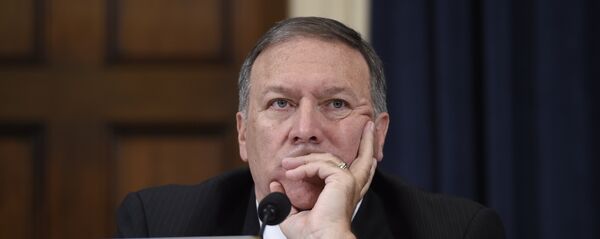North Korea has confirmed commitment to complete the denuclearization process and intention to destroy a facility for tests of missile engines, US Secretary of State Mike Pompeo said after a meeting with the foreign ministers of Japan and South Korea in Tokyo on Sunday.
"North Korea reaffirmed it's commitment to complete denuclearization… North Korea also reaffirmed it's earlier commitment to destroy its missile engine test site, which will make the region and the world safer," Pompeo said.
Pompeo is in Tokyo to brief his Japanese and South Korean counterparts on the talks, which he has characterized as productive. However, shortly after he left North Korea, Pyongyang has issued a statement slamming what it described as Washington's "gangster-like" demand for a rapid nuclear dismantling.
However, Pompeo has reportedly brushed aside the characterization, saying discussions were continuing in "good faith", AFP Reported.
"If those requests were gangster-like, the world is a gangster, because there was a unanimous decision at the UN Security Council about what needs to be achieved," Pompeo was quoted as saying by AFP.
Mike Pompeo also stressed that Pyongyang was committed to broad denuclearization and said that some security guarantees could be on the table during this process.
"Across the range of weapons and missiles, it's broad definition of denuclearization, and the North Koreans understand that and have not challenged that," US Secretary of State Mike Pompeo was quoted as saying by AFP. "There will be a verification connected to the complete denuclearization, it's what President Trump and Chairman Kim both agreed to," Pompeo said at a press conference with his Japanese and South Korean counterparts.
"Sanctions will remain in place until final, fully verified denuclearisation as agreed to by Chairman Kim occurs," Pompeo said in Tokyo after talks with his Japanese and South Korean counterparts. "While we are encouraged by the progress of these talks, progress alone does not justify the relaxation of the existing sanctions regime," Senior US diplomat was quoted as saying by AFP.
Pompeo, on his part, thanked Abe for the efforts to strengthen the bilateral relationship that helps ensure peace in the region.
"The missile and nuclear programs of North Korea, as well as the problem of abducted Japanese nationals, are important issues for maintenance of peace and stability in Japan and the region. Japan and the United States would like to address these issues in close cooperation," Shinzo Abe was quoted as saying by Kyodo news agency.
In addition, Japanese Foreign Minister Taro Kono said that Japan, the United States, and South Korea confirmed on Sunday during the tripartite talks the commitment to the denuclearization of the Korean peninsula.
"Today, we managed to reaffirm our commitment to further strengthening tripartite cooperation in order to achieve our common goal of the complete, verifiable and irreversible destruction of all types of weapons of mass destruction and missiles of any range. We also discussed ways to work together to encourage North Korea to take concrete actions to implement the provisions of the UN Security Council resolution," Kono said at a joint press conference.
The three ministers also expressed commitment to guarantee the preservation of the regime in North Korea, in accordance with the arrangements reached at the historic US-North Korean high-level summit in Singapore.
"Japan will continue seeking to normalize relations with North Korea by resolving such issues as the North Korean nuclear program and the problem of abducted Japanese citizens… We need to give a new start to our relations with North Korea," Kono added.
Following the visit, Pompeo noted a progress in the talks, in particular, on the destruction of a North Korean missile engine testing facility.
In turn, the North Korean Foreign Ministry said that the vice chairman of North Korea's ruling Workers Party Central Committee had handed Pompeo a letter for Donald Trump from Kim Jong-un.
On Saturday, Washington and Pyongyang had reportedly agreed to establish working groups, which would be checking the course of the denuclearization of the Korean peninsula.




